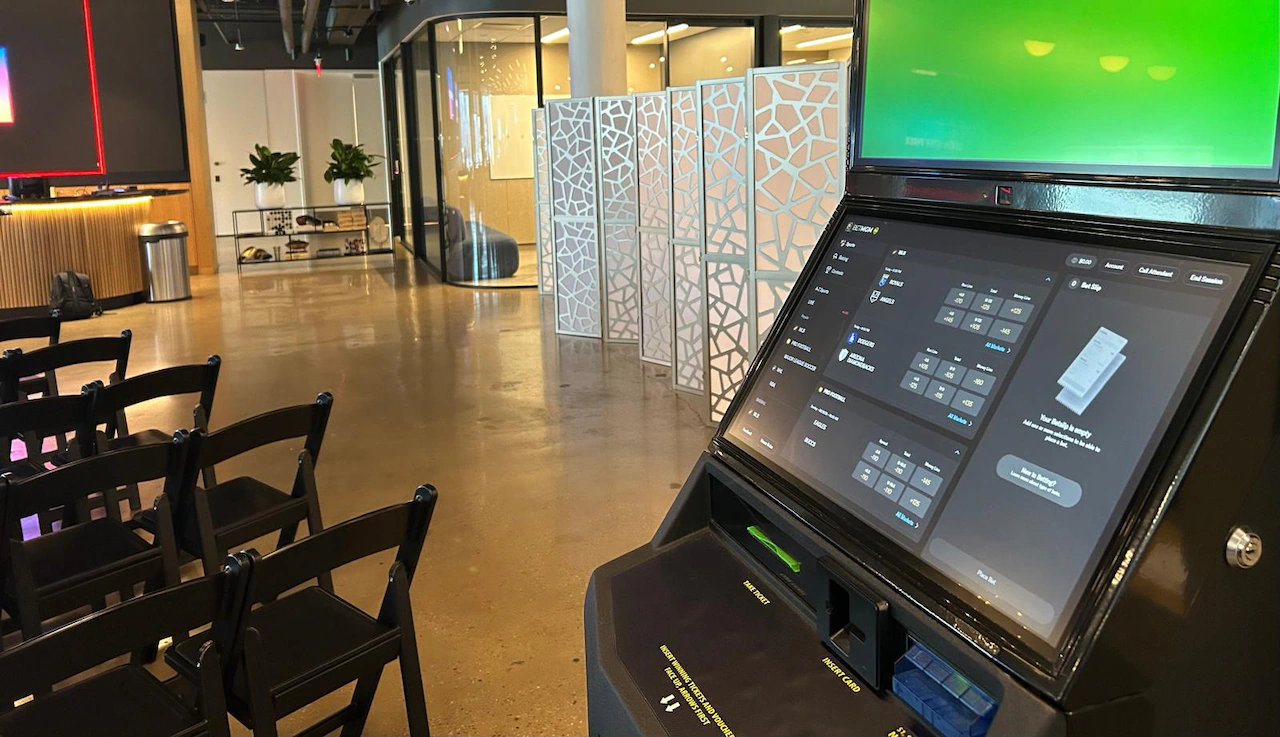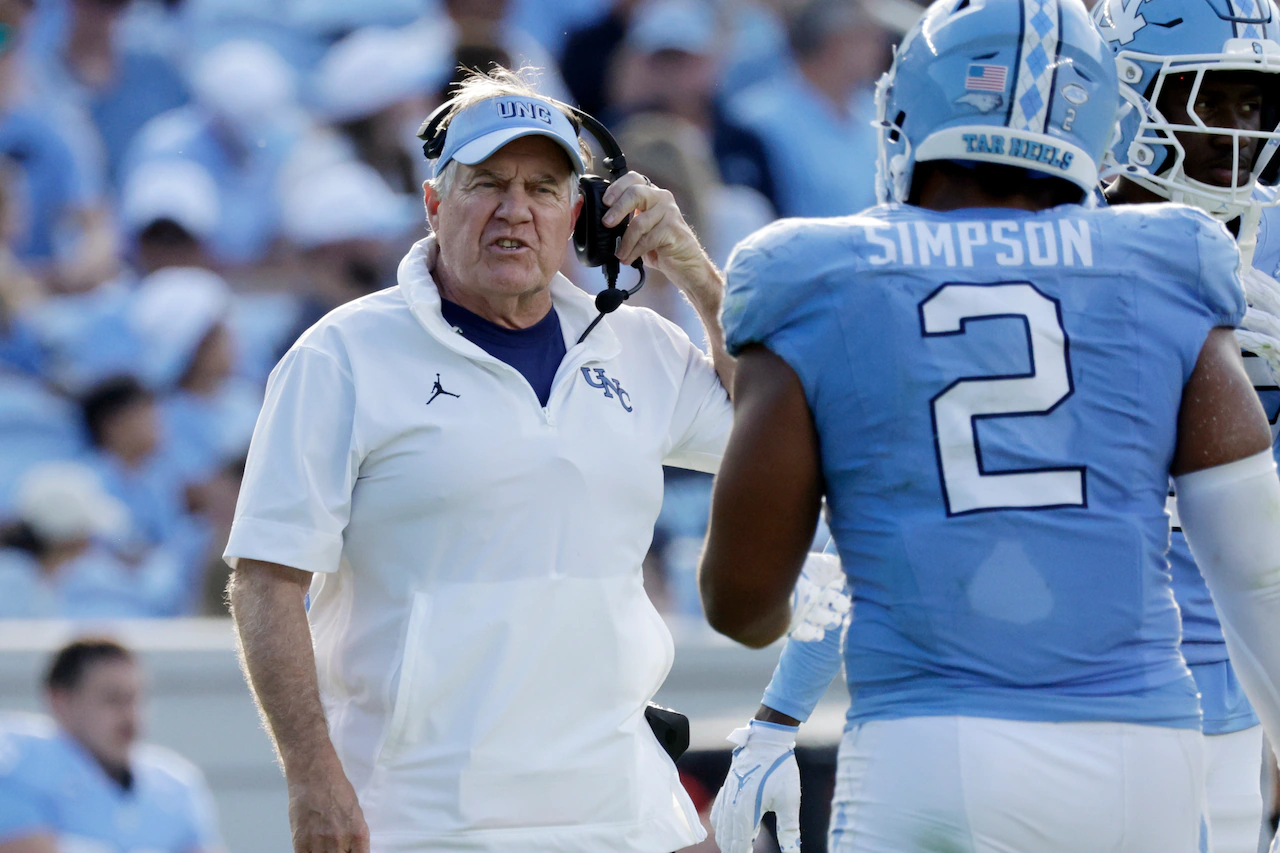
The news that the Giants were making a quarterback change — tapping Jaxson Dart over Russell Wilson — came in an X post from a pair of NFL insiders at 12:27 p.m. Tuesday.
Bettors immediately took notice, placing loads of action on the Los Angeles Chargers to befuddle the rookie in Sunday’s clash with the Giants at MetLife Stadium.
And inside his Jersey City office, Seamus Magee’s computer went bonkers.
A manager in BetMGM’s traders department, Magee is tasked with managing BetMGM’s odds and market pricing by monitoring real-time betting activity.
Because odds makers want to encourage equal betting on both sides of a wager, Magee needed to decide whether the 6-point spread was weighted too heavily for action on the favored Chargers. He looked at the rapidly mounting bets and realized bettors were skeptical that an untested rookie quarterback like Dart could seriously challenge the NFL’s fourth-ranked scoring defense.
“Obviously we have Twitter notifications going for a thousand different reporters, so when a tweet comes through — Dart’s gonna be named starter — the first thing we do is look at our screen, open up the game to our back end with all the odds, and then on a different screen we’re looking at how the market is reacting to this,“ Magee said.
Many sports fans might assume NFL odds and bets are set in Las Vegas. But with just a few taps of his keyboard at 12:33 p.m. Tuesday, Magee moved the betting line to Chargers plus-6.5 points.
And he did it from inside his office in New Jersey.
“Many people think of Vegas when they think of sports betting and don’t realize the capital of the online betting industry is here in northern New Jersey,” said Matt Prevost, BetMGM’s Chief Revenue Officer, adding that competitors FanDuel, DraftKings and Caesars also have offices in nearby New Jersey offices overlooking the New York City’s skyline.
“This is a heavily quantitative industry and a lot of the same skills that you might apply in financial services across the river on Wall Street actually transfers very neatly into our world,” Prevost said.
Count Derek Jeter among those who had no idea the nation’s top sportsbooks largely operate in New Jersey. For most of his 20-year Hall of Fame career, the New York Yankees shortstop lived in a luxurious four-bedroom penthouse at Trump World Tower across the Hudson River.
On Tuesday, he was on the Jersey side. Jeter toured the seventh-floor Hudson Street office that opened in February 2019, 7 1/2 months after the Supreme Court paved the way for New Jersey to legalize sports betting by overturning the Professional and Amateur Sports Protection Act.
In a sit-down interview with NJ Advance Media, Jeter said he never imagined sports betting becoming intertwined with Major League Baseball like it has in recent years.
“Not at all, because when I played it was, ‘If you gamble, you’re suspended for life,’ so no, I didn’t think it would become such a big deal,” said Jeter, who became a BetMGM brand ambassador in July. “But with how everything has evolved, one of the good things is it’s drawn more interest in sports fans and keeps them engaged. Especially in baseball. I think this probably turns some people into fans.”
Sports gambling has become a $149.6 billion industry in the United States, resulting in $2.8 billion in tax revenue last year. While New Jersey started the sports betting boom by successfully fighting to have the federal ban overturned in 2018, legalized sports betting has spread to 38 states.
New York took in the most sports bets in 2024, recording a $22.7 billion handle. New Jersey ranked third among U.S. states in total handle at $13 billion, translating into $141.2 million state tax revenue last year.
“In addition to all the jobs we’ve created, in addition to all the community activities we’ve done, we as an organization have paid north of $400 million in taxes to the state of New Jersey since 2019,“ Prevost said. “This has been good for New Jersey.’’
However, advocates and mental health professionals fear the proliferation of sports betting opened a perilous gateway for a new generation of gamblers who are one smartphone app from ruin.
A 2023 Rutgers University report that analyzed the prevalence of online and casino gambling in New Jersey said that gamblers were “significantly more likely” than non-gamblers to report morbid thinking, such as suicide ideation.
Meanwhile, the Council on Compulsive Gambling of New Jersey reports a nearly 300% increase in calls to its 800-GAMBLER helpline since New Jersey legalized sports betting in 2018, according to Daniel Meara, a communications specialist for the nonprofit organization.
“The economic pluses that derive from gambling do not factor in the costs of problem gambling,” Meara said. “These costs are largely overlooked and have resulted in a growing public health concern. They impact not only the problem gambler, but their families, their workplace, and their communities.”
While Gov. Phil Murphy last year established a task force to provide recommendations for addressing problem gambling in New Jersey, BetMGM was among seven of the nation’s largest online betting operators to create the Responsible Online Gaming Association, an organization committed to promoting “responsible online gaming by supporting independent research, promoting best practices, and driving consumer and industry education and awareness efforts.”
Officials at BetMGM told NJ Advance Media they recently expanded a behavioral health referral program designed to provide critical support for consumers experiencing gambling-related challenges.
Inside their Jersey City headquarters, they routinely host seminars with EPIC Global Solutions, a problem gambling education firm, to help employees assist individuals who may be at risk.
These initiatives come in the backdrop of several high-profile sports betting scandals, including the suspensions of two Cleveland Guardian pitchers earlier this year and the lifetime ban of an NBA player in 2024.
“The integrity of sports is important,“ Jeter said. “I think that’s No. 1 on the list of why you have to have legalized betting. Unfortunately you may always have incidents that occur but if you make a mistake, you get caught. When you have regulated betting, I think it’s helpful.’’
Sports betting revenue in New Jersey reached $1.09 billion before expenses and losses in 2024, which marked an 8.7% increase from its record $1.006 billion revenue figure in 2023, according to the New Jersey Division of Gaming Enforcement.
BetMGM represents 7.4% of the market, ranking third behind FanDuel ($548 million) and DraftKings ($297.8 million) with $79 million in online sports wagering gross revenue last year.
As part of his multiyear partnership with BetMGM, Jeter will appear in a national marketing campaign dubbed, “Legendary Plays.“
Yankees fans may remember him for a myriad of legendary plays, including the flip throw at Oakland in the 2001 playoffs, his 20 postseason home runs or the diving catch into the stands against Boston in 2004.
But Jeter offered a surprising answer when asked which of his legendary plays stand out to him, one that draws some parallels to his new endeavor.
“My first game (in 1996) I made a good couple of good defensive plays,“ he told NJ Advance Media. “I don’t think people pay that much attention to it. You need confidence at the beginning of your career to have success, and I think it just carried on. When you start a new job or career, you have doubts, like, ‘Am I going to be able to do it?’ And then once you have success, it’s ‘OK, I can do it.’”



